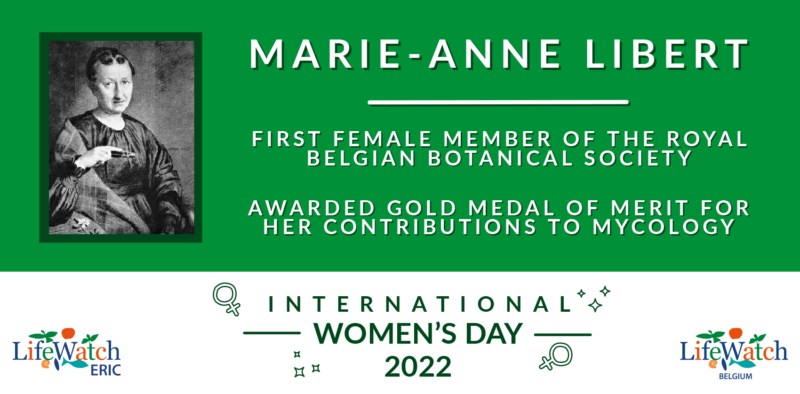
For International Women’s Day 2022, we at LifeWatch ERIC are putting eight scientists in the spotlight. Each of the LifeWatch ERIC member states has proposed a figure who has broken boundaries over the course of her lifetime, and is an inspiration to younger generations looking to pursue a career in STEM.
As we explored in the podcast we recorded for The International Day of Women and Girls in Science, women are still underrepresented in various scientific fields, such as engineering, computer science and AI. Additionally, scientific research in general is not only unbalanced in terms of composition (33% female) but also in terms of hierarchy, with only 12% of national science academy members being women, who are disproportionately overlooked when it comes to promotion and grants.
The women at the centre of our campaign are very diverse, hailing from a range of countries and time periods, but they all have one thing in common: overcoming the odds in order to contribute to scientific improvement. We want to draw attention to just a fraction of the women who have defied the cultural barriers pitted against them to bring good to the world, and bring recognition where they might have been overlooked.
Marie-Anne Libert was born in 1782 to a large family in Malmedy, now Belgium. She was a prolific author of fungal taxa, becoming the second woman formally to name a fungal taxon in the modern scientific era, and describing over 200 novel taxa during her lifetime.
While women were not admitted to Belgian universities for a hundred years after her birth, Libert’s father recognised his daughter’s academic potential and made sure she received an education. Upon return, Libert taught herself Latin so that she could read the many books about plants written in this language, inspired by the flora of her native town. Libert’s first new fungal taxon—Asteroma rosae—was a leaf spot (Libert 1827c) and she was the first to name to species the fungal cause of potato murrain, commonly known as potato blight. In a letter to the Journal de Liège, Libert ascribed the cause of the devastating potato blight recently observed in Belgium to a fungus, providing details of hyphae and spores as observed under the microscope. Her naming of pathogenic fungi contributed to a growing awareness among botanists that fungi were a major cause of plant diseases, and to the beginnings of the new discipline that became known as plant pathology.
She was well-regarded by her scientific peers, and in recognition of her contributions to mycology, Libert was elected an associate member of the Linnean Society of Paris in 1820, and awarded a gold medal of merit by Emperor Friedrich-Wilhelm III. At a scientific congress in Liège in 1836, she was unanimously elected president of the natural sciences section, and special note was made of the fact that she had ‘carried out her work without benefit of being close to any large scientific centre or even to a large library’. In 1862, she became the first woman invited to join the Royal Botanic Society of Belgium. Four genera were named after Libert during her lifetime, as well as three after her death, and she was also honoured in the name of a street in Malmedy in 1925.
This text was largely adapted from Naming names: the first women taxonomists in mycology, by Sara Maroske and Tom W. May.